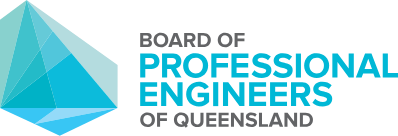
09 Nov Board registers RPEQ #30,000
The Board of Professional Engineers of Queensland registers and welcomes it’s 30,000th RPEQ Willem Nagel
The ranks of RPEQs continue to grow. In the last financial year, the Board welcomed an impressive 2,000 new registrants, the highest annual number of new registrants in the Board’s 90-year-plus history.
In August, another significant achievement was unlocked as the Board welcomed its 30,000th RPEQ. Willem Nagel proudly holds this distinction, registering in Mechatronics, the Board’s newest area of engineering. To mark this occasion, BPEQ’s Communications and Engagement Manager, Jeremy Bishop sat down with Will to learn a little bit more about his life, his work, and what drove him to become a RPEQ.
Jeremy: Will, thanks for taking a moment and sitting down with me today. First off, could you tell me a bit about your background?
Will: Sure. I am originally from South Africa. I grew up in a reasonably small town called Bloemfontein, and I went to an all-boys school there known for sports. For University, I initially went to Stellenbosch, and first studied electrical and electronics engineering and didn’t enjoy it as much as I thought I would. I decided to take a break, took a year off, ran a couple of businesses and worked with my dad for a bit. I then spent several years working in the automotive industry. From there I went into the mining industry. The predominant time spent in my career so far has been as a regional manager for an energy generation company. In 2012, I completed a Bachelor of Engineering in Mechatronics from Nelson Mandela Metropolitan University.
I’ve been in Australia for approximately four years and currently work for CPM Advisory and Project Management, an advisory and management consultancy.
Jeremy: Why did you decide you wanted to be an engineer?
Will: It’s quite interesting. I can’t pinpoint the exact date or day when I decided to become an engineer, but I grew up with both my grandfather and father being very technical guys. My dad and I would go over to my grandfather’s place on weekends, and he was always renovating old cars and fixing things at home. Due to both his and my father’s influence, I grew up at a really young age learning how to strip down and build engines and fix cars. I learned to weld and use power tools from a really young age as well, and I have also always had an interest in how things work.
Those are probably the main reasons that I naturally transitioned into engineering. In grade ten, I did an aptitude test, and it confirmed that I am good in math and science and that I should probably follow something in that space.
Jeremy: As you know, Mechatronics is the Board’s newest area of engineering. Could you explain what Mechatronics is?
Will: Mechatronics degrees can differ from university to university. My Mechatronics degree was probably about 50% mechanical engineering, 30% electrical and electronics engineering and the last 20% was software-based things like industrial automation. I consider the degree to be a multi-disciplinary degree, drawing from multiple different engineering areas.
Jeremy: So, mechatronics is looking at larger systems?
Will: Some mechatronics degrees primarily focus on robotics and their engineering, design and construction. I think a good example of Mechatronics engineering is self-driving cars. A self-driving car is a mechanical system that also relies on electronics instruments and intelligent software algorithms to automatically move the car around. A mechatronics engineer would have the ability to design that piece of equipment. I currently work as a consultant in the large infrastructure industry, and having a mechatronics degree helps when I am sitting in rooms consulting clients. Working in the infrastructure industry as a mechatronics engineer, I can identify a lot of risks in relation to the interfaces between the mechanical, electrical and control system disciplines and policy side of things, because I’ve got formal academic qualifications. I think this skill set differentiates me from other skill sets in this industry and possibly sets me apart from others.
Jeremy: Are there any emerging areas of mechatronics or engineering in general that excite you?
Will: I think everyone’s obviously talking about artificial intelligence (AI), and it is the main technology that could have a strong application to mechatronics. Machine learning, a subset of AI, has and will continue to have a huge impact on the engineering industry. I believe having intelligent machines with the ability to make more intelligent machines will revolutionise our lives. If I look at, let’s say, from a maintenance aspect, an AI system can tell an operator a way a machine has been running for a couple of years. It can collect a whole bunch of data ahead of a possible failure. It realises that the failure was something that could have been anticipated. AI learning and machine learning software can close that gap. From an engineering perspective, this capability will create more benefits in the long term from an efficiency perspective but also from a safety perspective for people interacting with machines. The whole area interests me quite a bit.
.Jeremy: Why did you decide to become a RPEQ?
Will: In South Africa, we have a different approach to engineering registration, with titles such as Pr Eng, Pr Tech Eng, Pr Cert Eng, which is governed by the Engineering Council of South Africa and then two other certifications called government certificates of competency. When I moved to Queensland, I knew I wanted to be registered in my profession. I find registration shows you have credibility in your field. Having the RPEQ title behind my name shows that I have expertise in mechatronics. A RPEQ’s input when making decisions carries more value in certain rooms.
Jeremy: When you are not working, what do you do for fun?
Will: Now, there is not a lot of time for fun, as I am currently seeking to complete my MBA at The University of Queensland. I started my MBA three years back and will finish it this month. When I am not working or studying for my MBA, I spend time with my family. My wife and I have a five-year-old daughter and a boy who just turned one in June. I love to spend time with the family at the beach – and our next step on our Australian journey is our pathway to Australian citizenship. Our applications are in, and we are just waiting for a citizenship ceremony.

Jeremy: Final question, as a semi-recent immigrant to Australia, are there any surprising differences between Australia and South Africa that you weren’t expecting?
Will: I think the biggest difference is about Brisbane, and how everyone knows everyone else. There only seems to be two to three degrees of separation between people. When you look at Australia on a map, it looks like such a big country. But only 26 million people reside in Australia as a whole, whereas South Africa currently holds more than 60 million people. I love that Brisbane feels like a small town at heart.
Many thanks to Will for taking the time to talk to us about his engineering journey and his pathway to RPEQ 30,000. To learn more about how to become a RPEQ please visit the Board website.
For current events, regulatory updates and news follow us on https://www.linkedin.com/company/bpeqld/

 MY ACCOUNT
MY ACCOUNT
